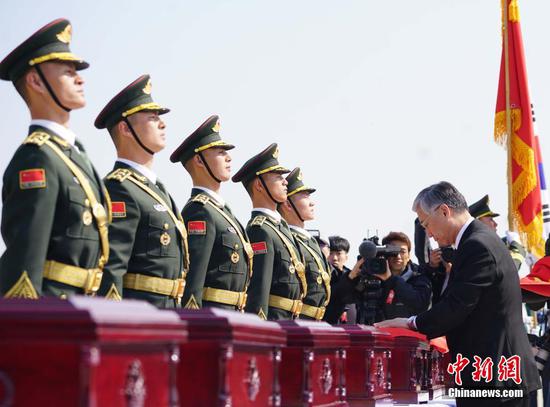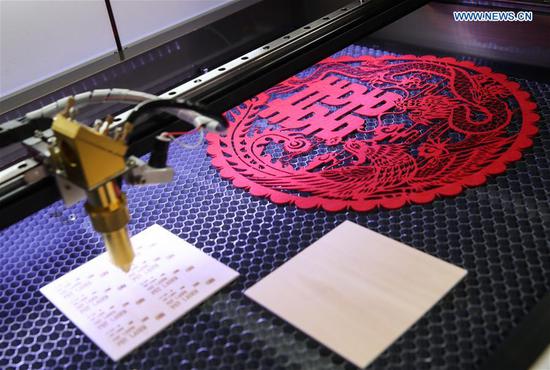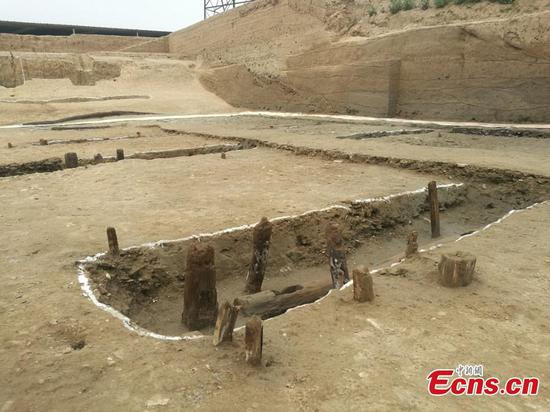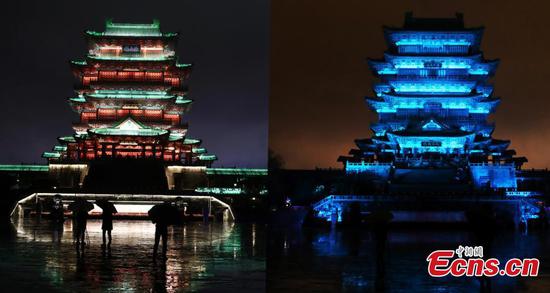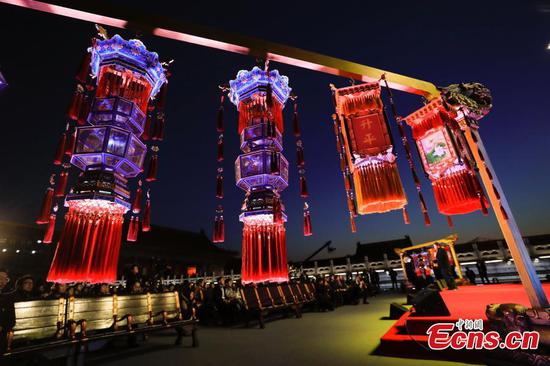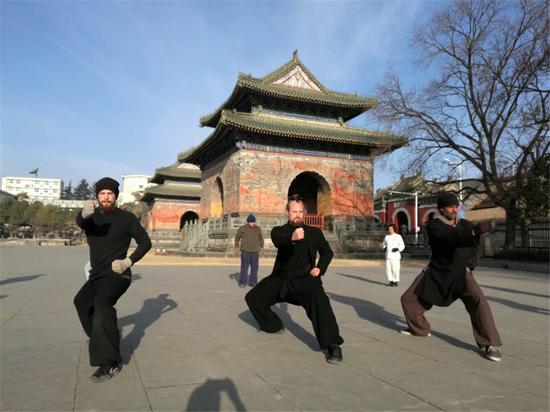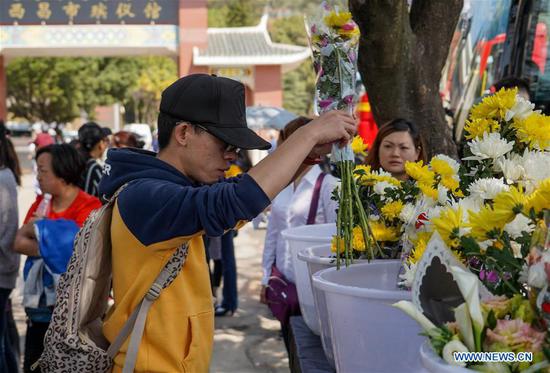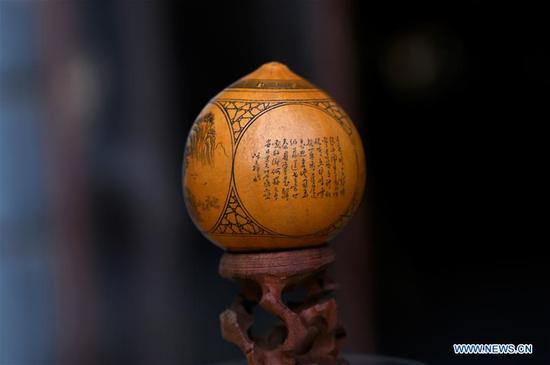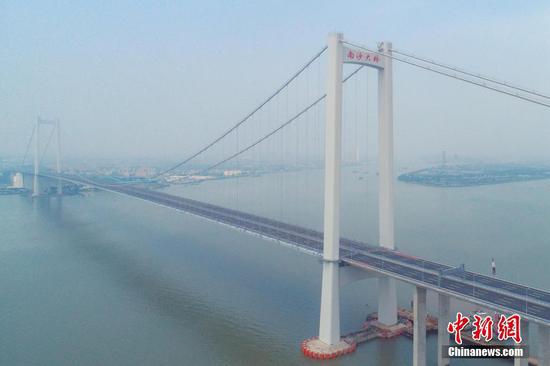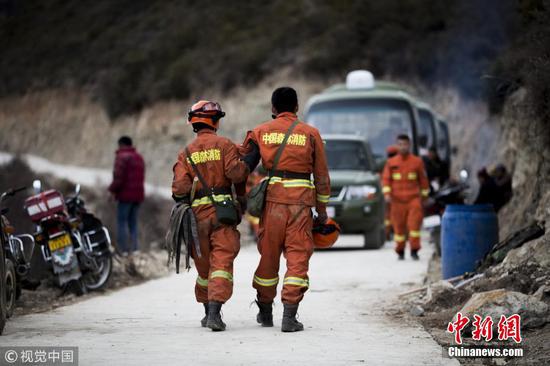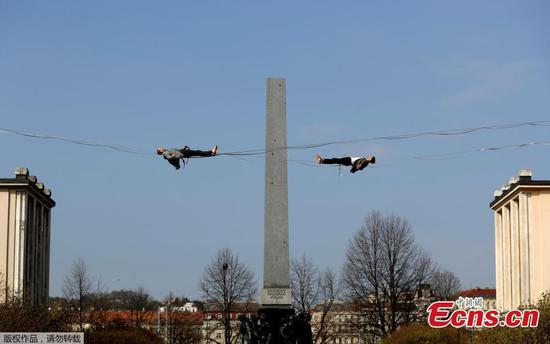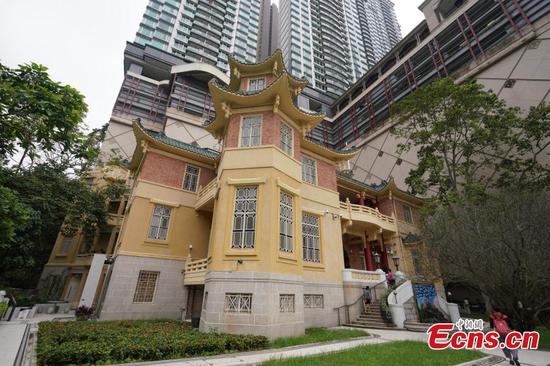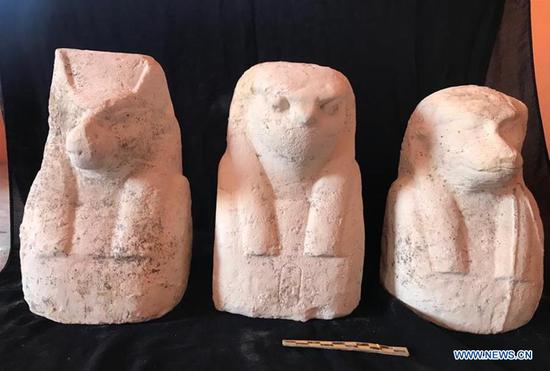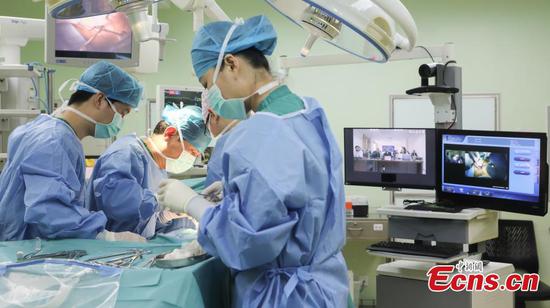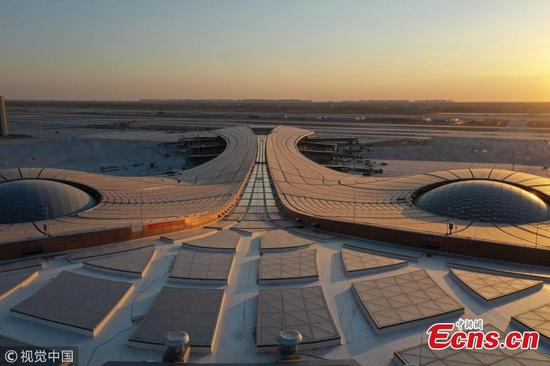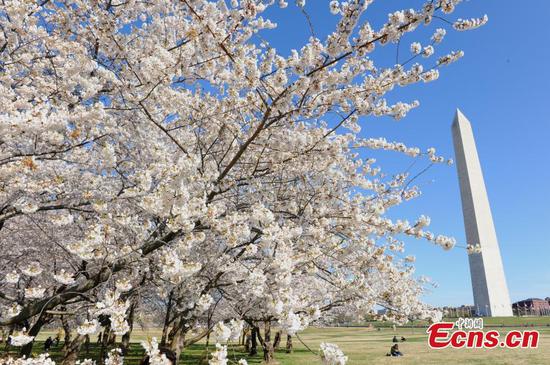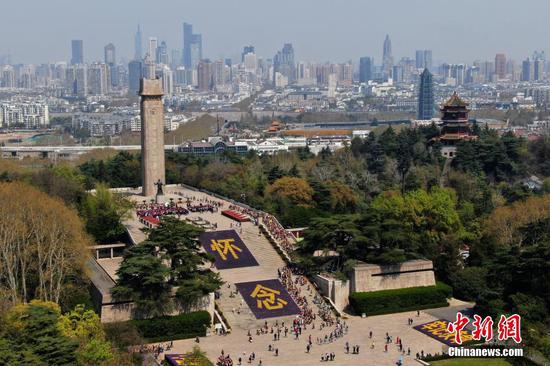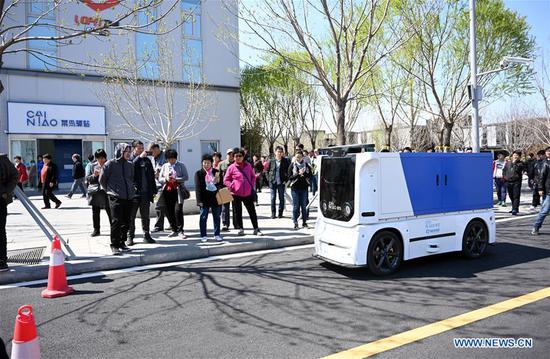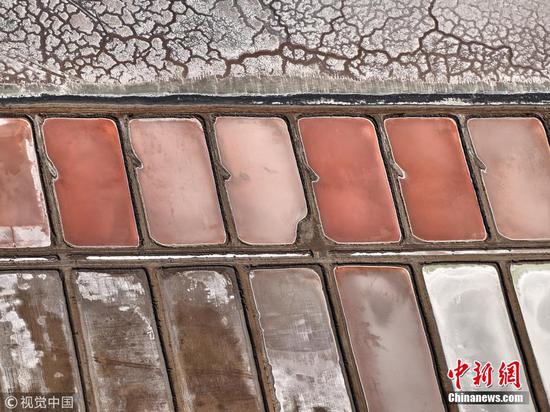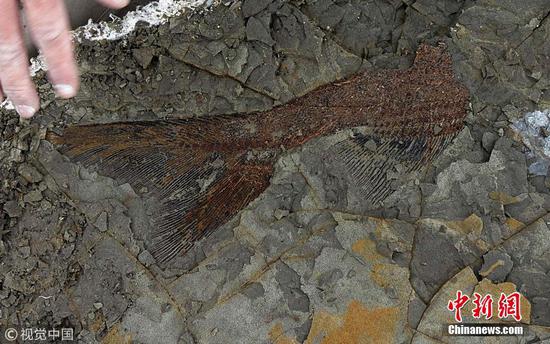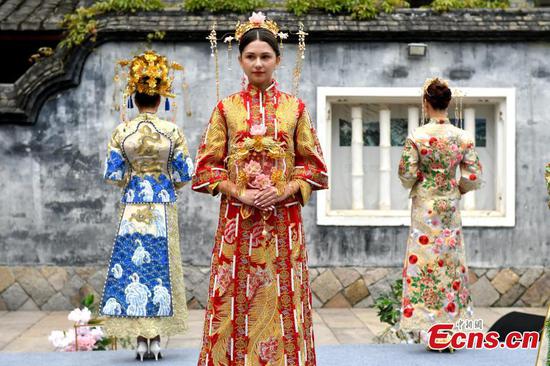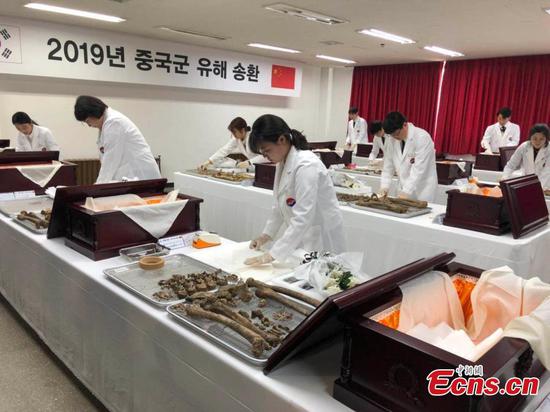
Visitors show interest in traditional costumes from South Korea during a textile expo in Dalian, Liaoning province. [Photo by Wang Xizeng / For China Daily]
China used the negative list system for the first time to conduct negotiations on service trade and investment during the second phase of China-South Korea Free Trade Agreement talks, the Ministry of Commerce said in a statement.
The ministry said that the two sides will continue to create a freer and convenient environment for service trade and investment for companies. The meeting was held in Beijing on March 29.
Even though the China-South Korea FTA already has many "advanced articles" in highlighting services and investment, introducing negative list in the FTA negotiation indicates that China is keen to further connect this mechanism with global markets, said Bai Ming, a researcher at the Chinese Academy of International Trade and Economic Cooperation.
A negative list rules which economic activities are prohibited, while all others are considered to be allowed.
If the negotiations with South Korea are successful, it means that China's negative list system can not only promote the future talks of bilateral and multilateral free trade agreements with other partners, but also push the country to further optimize this system to support various economic activities, not only available in its pilot free trade zones, he said.
China currently is South Korea's largest trading partner, export market and largest source of imports by volume, and South Korea is China's third-largest trading partner. Since the bilateral FTA became effective in December 2015, the two sides have cut tariffs four times and about 50 percent of goods they trade in now enjoy zero tariffs, data from the Ministry of Commerce show.
Upgraded trade and investment policies of China-South Korea FTA will also build a better platform to accelerate China-Japan-South Korea Free Trade Zone negotiations and strive to reach a comprehensive, high-level, mutually beneficial and valuable free trade agreement in the future, said Huo Jianguo, vice-chairman of the China Society for WTO Studies.
His comments came after the chief negotiator conference of the 14th round of China-Japan-South Korea Free Trade Zone negotiations was completed in Beijing in December last year, and China and Japan held the vice-ministerial meeting of the 13th China-Japan Economic Partnership Negotiation in Beijing on Wednesday.
The two sides exchanged views on regional and multilateral cooperation issues such as trade, investment, third-party market development, innovation, the Regional Comprehensive Economic Partnership, the China-Japan-South Korea Free Trade Zone and the WTO reforms, during the vice-ministerial meeting.
Zhang Shaogang, director-general of the Department of International Trade and Economic Affairs at the Ministry of Commerce, said China looks forward to working with Japan and South Korea to accelerate the progress of negotiation, in order to facilitate regional economic integration, free trade and investment this year. They are planning to have three meetings in 2019.
The 14th China-Norway FTA negotiation also took place in Beijing between March 25-28. The two sides gained positive progress on issues such as trade in goods, service trade and investment, rule of origin, customs procedures and trade facilitation, technical trade barriers, trade remedy, environment and legal issues, according to the Ministry of Commerce.















